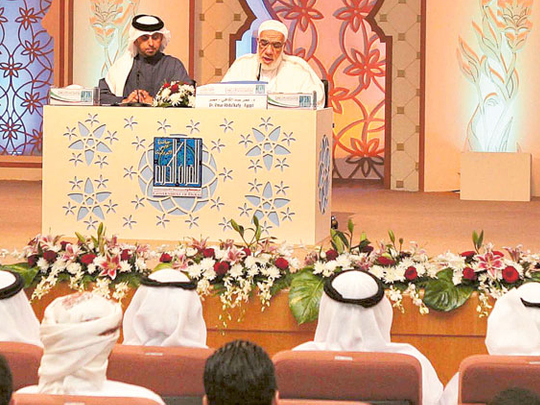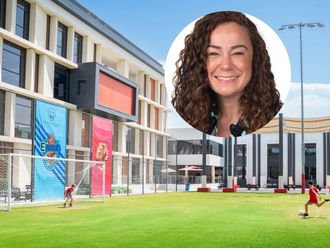
Dubai:
As many as 91 contestants have confirmed their participation for the 16th edition of the Dubai International Holy Quran Award (Dihqa).
The lectures section of Dihqa is already under way and the competition phase will begin on July 27, Friday, the 8th of Ramadan, culminating with the awards ceremony on August 8, the 20th of Ramadan.
According to a senior official at Dihqa, invitations were sent to 120 countries for the competition and so far 91 countries from across the world have confirmed participation.
The participants, who have begun to arrive in Dubai, will be filtered through an initial evaluation by the judges.
A panel of five judges who are all eminent scholars from different countries will evaluate the contestants’ grasp of the Quran, while three additional experts will look into the voice quality of each participant.
The head of the panel this year will be Salem Ghorm Allah Al Zahrani from Saudi Arabia, who will be assisted by Syed Ali Abdul Majid Abdul Sami from Egypt, Abdullah Abdul Aziz Al Amari from Bahrain, Mousa Noor Bilal Ahmad from India and Saeed Agil Husain Al Munawar from Indonesia.
Participants for the competition are selected based on national competitions in their respective countries organised by government authorities or by a chosen Islamic institution in the case of non-Muslim countries.
Once the shortlisted contestants arrive in Dubai, they are further screened by an evaluation process following which each participant has to recite from five different sections of the Quran. Two of these recitals are assessed at the contestants’ accommodations while the remaining three must be performed on stage.
According to the Dihqa criteria, the judges mainly look at the accuracy of Quran memorisation, while some points are also awarded for Tajweed (intonation) and voice quality.
The Dihqa was launched by His Highness Shaikh Mohammad Bin Rashid Al Maktoum, Vice-President and Prime Minister of UAE and Ruler of Dubai, in 1997.
The winner of the prestigious contest receive Dh250,000, while the first and second runners-up collect Dh200,000 and Dh150,000 respectively.
Last year the coveted prize went to Libyan Salem Mohammad Al Qandoos, while the second and third places were taken by Qatari Abdullah Hamad Abu Sharida and Turkish Ahmet Sharikaya, both of whom are visually impaired.
This year, the prestigious Islamic Personality of the Year of Award, another part of Dihqa, will be presented to renowned American Islamic scholar Yousuf Estes.
Last year, the award was presented to President His Highness Shaikh Khalifa Bin Zayed Al Nahyan.












